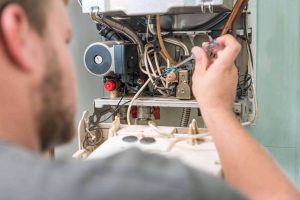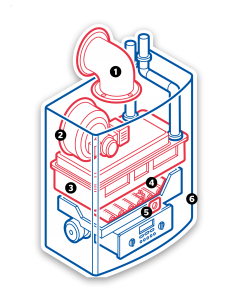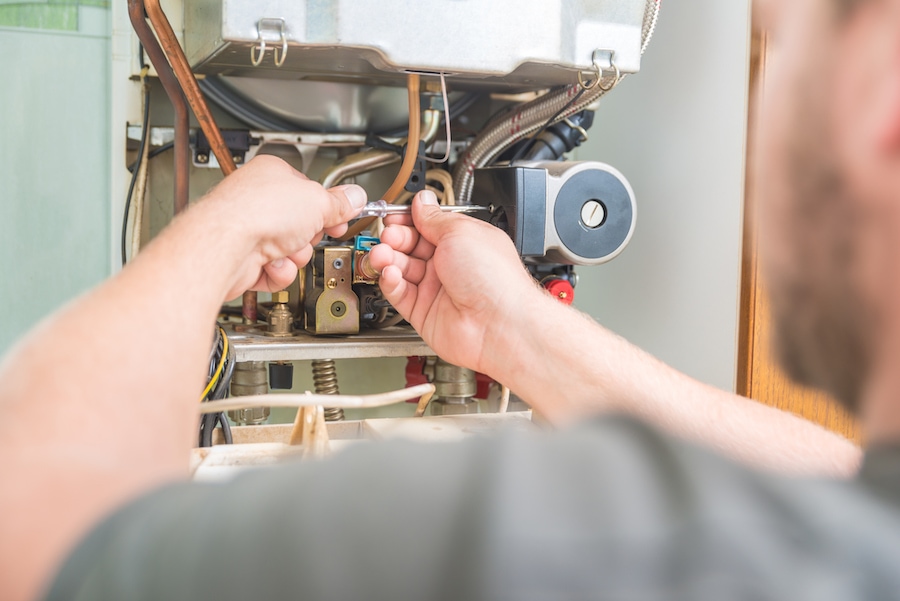Boiler Service

Why do I need to maintain my boiler?
You should have your boiler serviced annually. Not only will this ensure it’s running efficiently and safely for the year ahead, but it will also validate any manufacturer’s warrantees you have on the appliance. Regular maintenance minimizes the risk of breakdown and helps lengthen the lifespan of your boiler too.
Servicing your boiler keeps you safe and healthy
Carbon Monoxide is a real danger to anyone with a fuel burning appliance in the home. This toxic gas is odorless, colorless and tasteless, meaning that most don’t even know they are being poisoned. Regularly servicing your boiler ensures it is combusting fuel safely and efficiently, minimizing the risk of carbon monoxide poisoning.
And for the elderly, vulnerable or those with young children, ensuring you have a working boiler is a must for the months ahead. While to most of us, the boiler breaking down is an inconvenience, for some, a lack of heating and hot water can have severe health and financial repercussions.
It's not just homeowners who need to take note of boiler maintenance. Landlords are obliged to have a gas safety certificate by law and must ensure their boilers are running safely. An annual boiler service is essential and a relatively inexpensive piece of maintenance to undergo each year.
Servicing your boiler saves you money
Maintaining an appliance will almost certainly save you money in the long run - the cost of regularly maintaining an appliance can be significantly less than the cost of repairing or replacing an appliance which is not serviced and breaks down. When it comes to household appliances, your boiler is one of the more expensive ones to replace and can cause the most upset to everyday life.

Before we list what happens during a service, it’s important to ensure that the engineer is qualified to carry out the work. If you have a gas boiler then the engineer must by authorized and regulated by the Gas Safe register.
Here are some of the practices your engineer may carry out during their visit:
Visual inspection: your engineer will check that the boiler still meets current standards and requirements and look for any corrosion or leaks. They will also visually check the flame in your boiler.
Removal of the boiler casing: they will then check the components to ensure everything is working correctly and then clean the inside of the boiler. These checks should include the heat exchanger, burner, main injector and spark probe.
Flue check: the engineer will ensure there are no obstructions in the flue terminals and that the flue is safely fitted.
Gas pressure check: this will ensure your boiler is working at the correct pressure.
Boiler fired up: this allows the engineer to check for any working faults.
















































